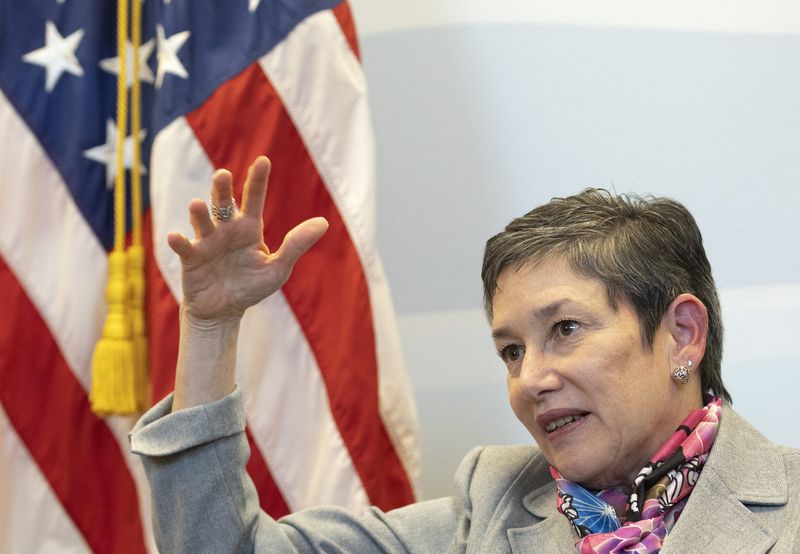WTO fails on dispute reforms before Trump takes office, US ambassador says
By David Lawder
WASHINGTON (Reuters) - World Trade Organization members failed to agree on reforms to revive a broken trade dispute settlement system during the last General Council meeting before U.S. President-elect Donald Trump takes office in January, outgoing U.S. WTO ambassador Maria Pagan said on Wednesday.
Pagan also told reporters in a briefing that the meeting on Monday and Tuesday in Geneva also failed to produce fisheries agreements on excess fishing capacity and overfishing.
The WTO has been trying for years to fix its dispute settlement system, which was rendered inoperative in 2019 after the U.S. blocked Appellate Body judge appointments over what it saw as judicial overreach in trade disputes. The talks, revived earlier this year, had aimed to replace and reform the appellate body.
Pagan, who led WTO negotiations for the U.S. Trade Representative's Office during the Biden administration, said there was some progress in the talks, but members remained divided on the key issue of "what kind of appeal is necessary and appropriate."
Through three U.S. administrations, starting with President Barack Obama's, Washington has accused the WTO Appellate Body of overstepping its boundaries, making new trade rules in its decisions that were not negotiated by the WTO's 166 member economies.
"I do think that some members were still just hoping that we would just change our minds, which, you know, we have not," Pagan said.
She said the U.S. was willing to explore many good ideas, but would still push for what it believes in.
"I do hope that people take it seriously," she added. "If they want us to be part of the system, then, you know, take us seriously.
NO TRUMP CONTACT
Pagan, a longtime career lawyer at USTR and the Commerce Department, said that she has had no contact with the Trump transition team and declined to comment when asked whether she had advice for Trump's nominee to lead USTR, Jamieson Greer.
Greer served as USTR chief of staff during Trump's first term and helped to impose steep tariffs on $370 billion worth of Chinese goods and global steel and aluminum imports in 2018 and 2019.
WTO dispute panels found that the China tariffs and the metals tariffs broke WTO trade rules, but the rulings have had no consequence because of the broken appellate function. A WTO panel also ruled last year against China's retaliatory tariffs on imports from the U.S.
Trump, who takes office on Jan. 20, has vowed to impose tariffs of 60% on Chinese goods and at least 10% on all other global imports, moves that would upend trade flows, raise costs for U.S. businesses and consumers and draw widespread retaliation against American exports.
The next WTO General Council meeting is scheduled for Feb. 18-19.
Pagan said, however, that the WTO's facilitator for dispute settlement negotiations, Ambassador Usha Dwarka-Canabady of Mauritius, has left the post, leaving the need to find a successor before talks can move forward.
Source: Investing.com
